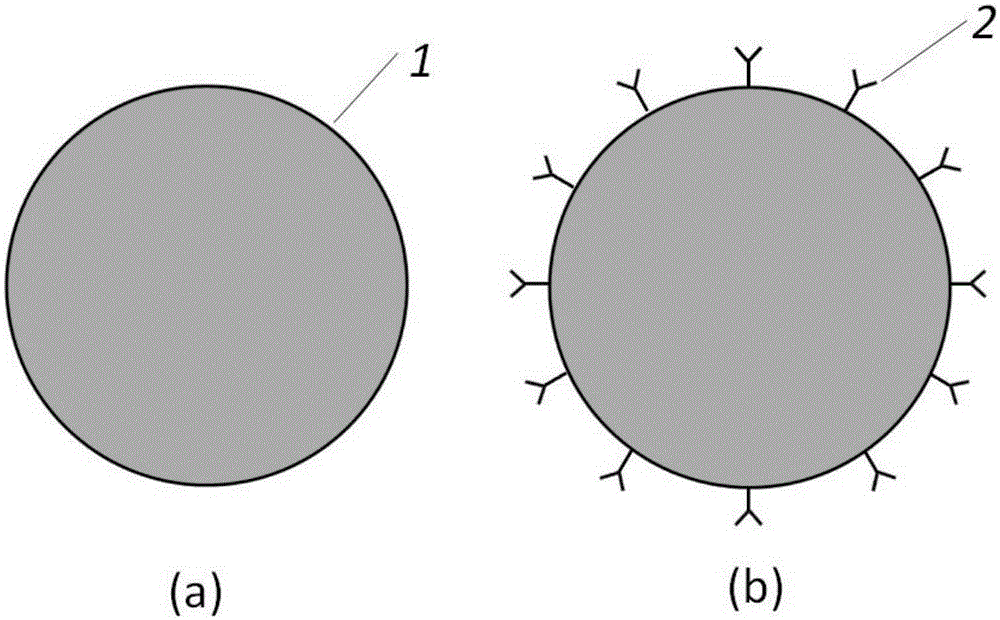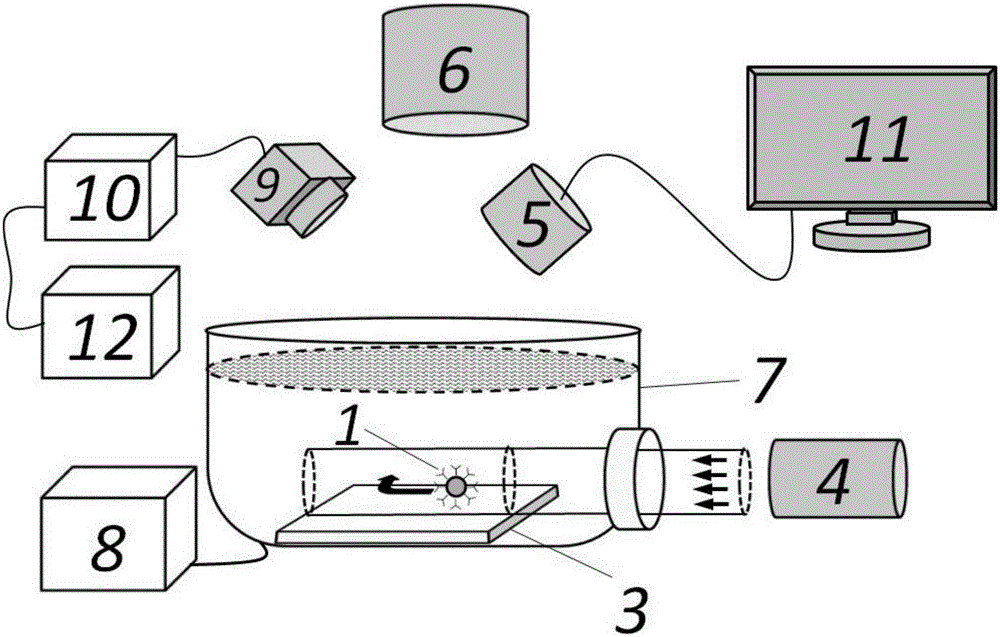Method for tunably capturing and screening topological insulator particles above substrate through utilizing linearly polarized planar light waves
A topological insulator and planar light wave technology, applied in the fields of biology, medicine and nano-manipulation, can solve the problems of complex incident light source, difficult to capture, non-tunable gradient optical force, etc., and achieve the effect of simple system and convenient operation
- Summary
- Abstract
- Description
- Claims
- Application Information
AI Technical Summary
Problems solved by technology
Method used
Image
Examples
Embodiment 1
[0021] First, the topological insulator particles 1 are produced by the material growth process, as shown in the attached figure 1 (a) shown. The geometric shape and size of topological insulator particles can be determined by finite time difference method, finite element method and other algorithms.
[0022] Secondly, nanometer-sized molecules 2 are attached to the outer surface of topological insulator particles 1, such as attached figure 1 (b) shown.
[0023] Then, the topological insulator particles 1 with nanometer-sized molecules 2 attached to the surface are placed above the substrate plate 3 at a distance of l (l>0), when the incident light is a linearly polarized plane wave and the topological insulator particles 1 are topologically non-trivial, The Poynting vector around the topological insulator particle 1 above the substrate 3 is asymmetrically distributed, that is, the total Poynting vector on the topological insulator particle 1 is not zero, resulting in a non-...
PUM
 Login to View More
Login to View More Abstract
Description
Claims
Application Information
 Login to View More
Login to View More - R&D
- Intellectual Property
- Life Sciences
- Materials
- Tech Scout
- Unparalleled Data Quality
- Higher Quality Content
- 60% Fewer Hallucinations
Browse by: Latest US Patents, China's latest patents, Technical Efficacy Thesaurus, Application Domain, Technology Topic, Popular Technical Reports.
© 2025 PatSnap. All rights reserved.Legal|Privacy policy|Modern Slavery Act Transparency Statement|Sitemap|About US| Contact US: help@patsnap.com



